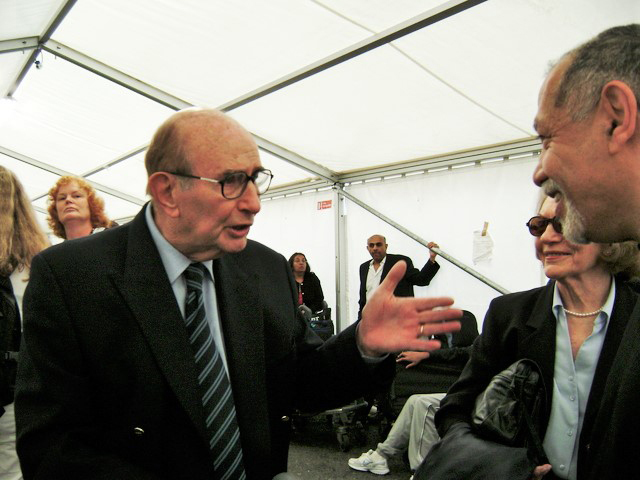All Article Properties:
{
"access_control": false,
"status": "publish",
"objectType": "Article",
"id": "717348",
"signature": "Article:717348",
"url": "https://staging.dailymaverick.co.za/article/2020-09-14-how-a-british-policeman-helped-normalise-torture-in-a-gulf-monarchy/",
"shorturl": "https://staging.dailymaverick.co.za/article/717348",
"slug": "how-a-british-policeman-helped-normalise-torture-in-a-gulf-monarchy",
"contentType": {
"id": "1",
"name": "Article",
"slug": "article"
},
"views": 0,
"comments": 0,
"preview_limit": null,
"excludedFromGoogleSearchEngine": 0,
"title": "How a British policeman helped normalise torture in a Gulf monarchy",
"firstPublished": "2020-09-14 23:59:19",
"lastUpdate": "2020-09-14 23:59:19",
"categories": [
{
"id": "38",
"name": "World",
"signature": "Category:38",
"slug": "world",
"typeId": {
"typeId": "1",
"name": "Daily Maverick",
"slug": "",
"includeInIssue": "0",
"shortened_domain": "",
"stylesheetClass": "",
"domain": "staging.dailymaverick.co.za",
"articleUrlPrefix": "",
"access_groups": "[]",
"locale": "",
"preview_limit": null
},
"parentId": null,
"parent": [],
"image": "",
"cover": "",
"logo": "",
"paid": "0",
"objectType": "Category",
"url": "https://staging.dailymaverick.co.za/category/world/",
"cssCode": "",
"template": "default",
"tagline": "",
"link_param": null,
"description": "",
"metaDescription": "",
"order": "0",
"pageId": null,
"articlesCount": null,
"allowComments": "1",
"accessType": "freecount",
"status": "1",
"children": [],
"cached": true
},
{
"id": "197056",
"name": "Declassified UK",
"signature": "Category:197056",
"slug": "declassified-uk",
"typeId": {
"typeId": "1",
"name": "Daily Maverick",
"slug": "",
"includeInIssue": "0",
"shortened_domain": "",
"stylesheetClass": "",
"domain": "staging.dailymaverick.co.za",
"articleUrlPrefix": "",
"access_groups": "[]",
"locale": "",
"preview_limit": null
},
"parentId": null,
"parent": [],
"image": "",
"cover": "",
"logo": "",
"paid": "0",
"objectType": "Category",
"url": "https://staging.dailymaverick.co.za/category/declassified-uk/",
"cssCode": "",
"template": "default",
"tagline": "",
"link_param": null,
"description": "",
"metaDescription": "",
"order": "0",
"pageId": null,
"articlesCount": null,
"allowComments": "1",
"accessType": "freecount",
"status": "1",
"children": [],
"cached": true
}
],
"content_length": 18547,
"contents": "<span style=\"font-weight: 400;\">In July, Bahrain’s highest court</span><a href=\"https://www.theguardian.com/world/2020/jul/13/bahrain-to-execute-two-activists-despite-concerns-over-torture\"> <span style=\"font-weight: 400;\">rejected</span></a><span style=\"font-weight: 400;\"> the final appeals of Mohammed Ramadan and Husain Moosa who now face execution for killing a policeman. Bahrain has executed five political prisoners in the past few years, most recently in July 2019.</span>\r\n\r\n<span style=\"font-weight: 400;\">Ramadan, who was arrested in 2014, says he was tortured by Bahraini security agencies. When he would not confess, Moosa was taken in and tortured until he implicated Ramadan. </span>\r\n\r\n<span style=\"font-weight: 400;\">Amnesty International</span><a href=\"https://www.amnesty.org/en/latest/news/2020/01/bahrain-death-sentences-upheld-for-two-men-tortured-to-confess/\"> <span style=\"font-weight: 400;\">states</span></a><span style=\"font-weight: 400;\"> that the two men face execution “following a grossly unfair trial that relied heavily on torture-tainted ‘confessions’”.</span>\r\n\r\n<span style=\"font-weight: 400;\">The modern roots of Bahrain’s repressive security state go back to 1966 when Anthony Parsons, a senior British colonial official, persuaded Sheikh Isa bin Salman Al Khalifa, the young ruler of Bahrain, to hire British colonial officer Ian Henderson and make him head of intelligence. </span>\r\n\r\n<span style=\"font-weight: 400;\">A small oil-rich archipelago between Saudi Arabia and Iran, Bahrain was then effectively part of the British empire.</span>\r\n\r\n<span style=\"font-weight: 400;\">Henderson had previously proved his worth in Britain’s then colony of Kenya, where the Kikuyu people had formed the Land and Freedom Army, an underground movement also known as the Mau Mau, which sought to end British colonial rule. </span>\r\n\r\n<span style=\"font-weight: 400;\">By the early 1950s London responded with brute force, forcing some 1.5 million people, nearly the entire Kikuyu population, into detention camps which have been termed “</span><a href=\"https://www.penguin.co.uk/books/104/1040417/britain-s-gulag/9781847922946.html\"><span style=\"font-weight: 400;\">Britain’s Gulag</span></a><span style=\"font-weight: 400;\">”.</span>\r\n\r\n<span style=\"font-weight: 400;\">Henderson, then a Special Branch intelligence officer, became one of Britain’s most prized assets in the war, helping to capture and “turn” Mau Mau generals and develop “pseudo-gangs” of former Mau Mau fighters to battle against their former comrades.</span>\r\n\r\n<span style=\"font-weight: 400;\">His greatest success for Britain was the capture of Dedan Kimathi, the last significant Mau Mau general, in 1956. Henderson was not present in the field that day, as he was in Nairobi entertaining a visit by Princess Margaret, the Queen of England’s sister. Kimathi was subsequently given a show trial and hanged.</span>\r\n\r\n<p><img loading=\"lazy\" class=\"size-full wp-image-717315\" src=\"https://www.dailymaverick.co.za/wp-content/uploads/Declassified-britpoliceTorture6.jpg\" alt=\"\" width=\"2000\" height=\"1334\" /> A statue of Dedan Kimathi in Nairobi, Kenya (Photo: Murungaru / Creative Commons)</p>\r\n\r\n<span style=\"font-weight: 400;\">General Gerald Lathbury, the commander-in-chief of British forces in East Africa from 1955-60,</span><a href=\"https://books.google.co.uk/books?id=nE_fCwAAQBAJ&pg=PA168&lpg=PA168&dq=no+one+has+done+more+than+ian+henderson&source=bl&ots=zdUjKFX8aF&sig=ACfU3U2bil9L2HyunQ-EqF3-h1u5-U0_2A&hl=en&sa=X&ved=2ahUKEwjvwNyPmbHqAhUOEcAKHQGoBJAQ6AEwAnoECAYQAQ#v=onepage&q=no%20one%20has%20done%20more%20than%20ian%20henderson&f=false\"> <span style=\"font-weight: 400;\">said</span></a><span style=\"font-weight: 400;\">: “Ian Henderson has probably done more than any single individual to bring the emergency to an end.” </span>\r\n\r\n<span style=\"font-weight: 400;\">A political amnesty intended to paper over the traumas of the Mau Mau uprising meant Henderson was never brought to justice, but after independence in 1963, the new Kenyan government deported him.</span>\r\n\r\n<span style=\"font-weight: 400;\">Henderson arrived in Bahrain a few years later amid turmoil. Following an intense anti-colonial protest movement in the 1950s, a new wave of student activism was now threatening the regime under the banner of leftist movements, among them the National Liberation Front (NLF). </span>\r\n\r\n<span style=\"font-weight: 400;\">In March 1965, the year before Henderson arrived, Bahraini nationalists almost killed the British chief of police, Bob Langdale, using a car bomb. Life-changing injuries forced Langdale to retire.</span>\r\n\r\n<span style=\"font-weight: 400;\">To ensure a similar incident could not occur, Henderson began to build a secret intelligence apparatus in Bahrain virtually from scratch, to ensure a state of fear.</span>\r\n\r\n<b>Eliminating the National Liberation Front</b>\r\n\r\n<span style=\"font-weight: 400;\">“He thought that if he repeated what he did in Kenya, he’d be successful,” says Abdulhadi Khalaf, who was a member of the NLF in the 1960s and 1970s, and is today an academic at Lund University in Sweden.</span>\r\n\r\n<span style=\"font-weight: 400;\">“When he came, there were still people in detention from the 1965 uprising. There was a pool from which he could select potential infiltrators,” says Khalaf. “They gave him an immeasurable number to select from and he was successful.”</span>\r\n\r\n<span style=\"font-weight: 400;\">Henderson got to work fast, deploying the same techniques of “recruiting” turncoats to fight his battles. Dissidents were hauled in, beaten and turned against their comrades.</span>\r\n\r\n<span style=\"font-weight: 400;\">Although there was nominally a police commandant, Jim Bell, who was recruited alongside Henderson and who stayed in Bahrain until the 1990s, it was widely recognised that Bell had no rein over Henderson, whose Special Branch took on a mythic reputation.</span>\r\n\r\n<span style=\"font-weight: 400;\">The British Foreign Office</span><a href=\"https://discovery.nationalarchives.gov.uk/details/r/C6144942\"> <span style=\"font-weight: 400;\">lauded</span></a><span style=\"font-weight: 400;\"> Henderson’s work as “virtually irreplaceable”. Activists, says Khalaf, warned each other that, “Even in the sky, there are clouds”</span><i><span style=\"font-weight: 400;\"> –</span></i><span style=\"font-weight: 400;\"> meaning that the regime had ways to discover what dissidents were planning. By the end of the 1960s, the NLF was completely penetrated.</span>\r\n\r\n<p><img loading=\"lazy\" class=\"size-full wp-image-717314\" src=\"https://www.dailymaverick.co.za/wp-content/uploads/Declassified-britpoliceTorture5.jpg\" alt=\"\" width=\"2000\" height=\"1123\" /> Dr Abdulhadi Khalaf. (Photo: Bahrain Mirror / Creative Commons)</p>\r\n\r\n<span style=\"font-weight: 400;\">However, there were limits to Henderson’s power and his reputation nearly crashed around him in December 1973, after Bahrain held its first parliamentary elections since gaining independence from Britain two years earlier.</span>\r\n\r\n<span style=\"font-weight: 400;\">There were no legal political parties and the NLF was still an underground movement. Henderson passed intelligence to the rulers to the effect that NLF-aligned candidates would win just a seat or two. </span>\r\n\r\n<span style=\"font-weight: 400;\">But, on the day of the election, the NLF-aligned leftist, urban bloc unexpectedly joined forces with a religious, rural bloc and together swept 16 of the 30 parliamentary seats, forming an assembly with the opposition in a majority. </span>\r\n\r\n<span style=\"font-weight: 400;\">Khalaf was one of the leftists elected. “That we won so much was a shock to the intelligence service,” says Khalaf. </span>\r\n\r\n<span style=\"font-weight: 400;\">The day after the elections, Henderson was summoned by Bahrain’s prime minister and brother to the ruler, Khalifa bin Salman, who demanded to know how this had happened. It could have been a career blow to Henderson, who could have left Bahrain at this time. However, he hung on.</span>\r\n\r\n<p><img loading=\"lazy\" class=\"size-full wp-image-717312\" src=\"https://www.dailymaverick.co.za/wp-content/uploads/Declassified-britpoliceTorture4.jpg\" alt=\"\" width=\"2000\" height=\"1516\" /> Bahrain's Prime Minister Prince Khalifa bin Salman Al Khalifa, centre, attends the second Asia Cooperation Dialogue summit at the Ministry of Foreign Affairs in Bangkok, Thailand, 10 October 2016. (Photo: PA / Rungroj Yongrit)</p>\r\n\r\n<span style=\"font-weight: 400;\">The new Parliament opposed many neo-colonial policies in Bahrain, including the country’s hosting of a US naval fleet, which increased its presence in the Gulf as British ships partially withdrew from “East of Suez”.</span>\r\n\r\n<span style=\"font-weight: 400;\">Henderson’s opportunity to reassert the authority of the Bahraini state came in 1974 when the ruler, Sheikh Isa, illegally enacted a state security law while Parliament was in recess. This new law, among many other draconian measures, allowed detention without charge for up to three years on a renewable basis.</span>\r\n\r\n<span style=\"font-weight: 400;\">For a secret policeman like Henderson, this was a gift. When MPs tried to block the law, Sheikh Isa suspended the constitution and dissolved parliament in 1975.</span>\r\n\r\n<b>Watershed moment for Bahrain</b>\r\n\r\n<span style=\"font-weight: 400;\">The collapse of Bahrain’s democratic experiment within four years of independence was a coup for the absolute monarchy. Henderson’s Special Branch was rebranded the Security and Intelligence Services (SIS) and the Bahraini security forces soon expanded, with Henderson at the helm.</span>\r\n\r\n<span style=\"font-weight: 400;\">Khalaf was one of the first people arrested after the state security law came into effect. As a former MP, he was a well-known leftist activist. “During that period I met Henderson,” Khalaf told me. “The first time, I was taken from my cell to his office. I thought they would interrogate me, but it was a social visit. Henderson’s wife [who worked as his secretary] came with a cup of tea and served us.</span>\r\n\r\n<span style=\"font-weight: 400;\">“Henderson talked for a half hour and then I was sent back. During this meeting, I asked him ‘what am I here for’? He said, ‘I have nothing to do with this, it’s the prime minister’s order.’” Khalaf continued, “Many of the things that are done are not according to Henderson’s liking and this included my arrest.” </span>\r\n\r\n<span style=\"font-weight: 400;\">Yet, Henderson oversaw Khalaf’s solitary confinement and 90 days of detention without trial. When Khalaf met Henderson a second time in 1976, after another arrest and release, Henderson approached him as he sat at his usual café in Manama, Bahrain’s capital, and informed him that a NLF member’s home would be raided that night.</span>\r\n\r\n<span style=\"font-weight: 400;\">“I took it as a bizarre test of how I would respond to this information,” said Khalaf. Henderson was testing the waters, possibly seeing if Khalaf could be turned. In the event, the NLF member’s house was raided but the dissident was able to clear his home of documents.</span>\r\n\r\n<span style=\"font-weight: 400;\">Whatever Henderson said about being dissatisfied with what he was asked to do – a claim he repeatedly makes in his communications with the Foreign Office, where he presents himself as a</span><a href=\"https://discovery.nationalarchives.gov.uk/details/r/C11555200\"> <span style=\"font-weight: 400;\">moderating influence</span></a><span style=\"font-weight: 400;\"> – his actions tell a different and more complex story.</span>\r\n\r\n<span style=\"font-weight: 400;\">In the 1960s, British officers were directly involved in questioning detainees. Derek Franklin, a colonial police officer brought to Bahrain by Henderson, has told me of his work with a Bahraini called Yusuf, a feared police officer known for beating detainees, attests Khalaf. “Yusuf and I would interrogate – Yusuf would interrogate of course, I was listening”, Franklin told me.</span>\r\n\r\n<p><img loading=\"lazy\" class=\"size-full wp-image-717311\" src=\"https://www.dailymaverick.co.za/wp-content/uploads/Declassified-britpoliceTorture3.jpg\" alt=\"\" width=\"318\" height=\"450\" /> Derek Franklin wrote a book about his experiences as a colonial policeman, (Photo: A Pied Cloak)</p>\r\n\r\n<span style=\"font-weight: 400;\">Franklin had served under Henderson in Kenya during the Mau Mau uprising and worked for him in Bahrain from 1955 until the pair eventually fell out in 1971 over the latter’s controlling and secretive behaviour.</span>\r\n\r\n<span style=\"font-weight: 400;\">When I spoke to him at his home in Ashford, Kent in 2013, he told me: “In the end, [Henderson] was not a man I could trust. You would tell him one thing and he would tell somebody else something else. A case in point was the arrest of 10 Palestinian expatriate teachers, most of whom were linked to their country’s mainstream Fatah political movement.</span>\r\n\r\n<span style=\"font-weight: 400;\">“Ian arrested the whole lot,” Franklin said, causing concerns from the sheikh who did not want to appear pro-Israel. But the police commandant, Jim Bell, defended Henderson, insisting the latter had sources indicating they were “up to no good”. </span>\r\n\r\n<span style=\"font-weight: 400;\">But, Franklin recalled, “They weren’t. They were just ordinary members of Fatah which everyone accepted. All Palestinians would have some connection with it. They weren’t necessarily connected to any of the extremist ones. So Ian manipulated it: they were dangerous people, they had to be got rid of.”</span>\r\n\r\n<span style=\"font-weight: 400;\">“How did I hear about this?” Franklin asked me rhetorically. “Ian tapped the telephone of the commissioner of the police, Jim Bell. So he heard all the conversations between Sheikh Isa and Jim Bell... I know it because he invited me into his office one day and said, ‘Derek… I want you to listen to this.’</span>\r\n\r\n<span style=\"font-weight: 400;\">“He thought he was the king of his [domain],” says Franklin, as Henderson engineered scares to cement his usefulness to the regime. “He was in the process of building up an empire by imagining or presenting a threat that perhaps didn’t exist in the way he was presenting it.”</span>\r\n\r\n<b>Britain and torture</b>\r\n\r\n<span style=\"font-weight: 400;\">Torture in Bahrain preceded Henderson. The Bahraini police force was set up in the 1920s and brutality was committed</span><a href=\"https://marcowenjones.wordpress.com/2013/05/29/methods-of-a-mild-spanish-inquisition-british-torture-in-bahrain-before-ian-henderson/\"> <span style=\"font-weight: 400;\">as early as then</span></a><span style=\"font-weight: 400;\">, when British officials personally engaged in what one of them called “methods of mild Spanish Inquisition”.</span>\r\n\r\n<span style=\"font-weight: 400;\">But after the 1974 state security law, and under Henderson’s watch, torture became systemic as a method of repressing dissent. Between 1975 and 1999 at least 37 Bahrainis were killed by the police, 15 of them in police custody suspected of having been tortured. Official autopsies attributed these deaths to natural causes or even</span><a href=\"https://www.amnesty.org/download/Documents/200000/mde110011991en.pdf\"> <span style=\"font-weight: 400;\">suicide</span></a><span style=\"font-weight: 400;\">. </span>\r\n\r\n<span style=\"font-weight: 400;\">Henderson’s ruthless reputation was cemented in the mid-1990s when an </span><i><span style=\"font-weight: 400;\">intifada </span></i><span style=\"font-weight: 400;\">(uprising)</span> <span style=\"font-weight: 400;\">burst out as renewed demands for the reinstatement of Parliament were met by crushing police violence.</span>\r\n\r\n<p><img loading=\"lazy\" class=\"wp-image-717308 size-full\" src=\"https://www.dailymaverick.co.za/wp-content/uploads/Declassified-britpoliceTorture1-scaled.jpg\" alt=\"\" width=\"2065\" height=\"2560\" /> Female Bahrain riot police pepper-spray a pro-reform female protester during an all-women protest on the outskirts of Manama, 17 February 2012, as they attempted to reach Lulu Roundabout, the former site of pro-reform protests. (Photo: EPA / Mazen Mahdi)</p>\r\n\r\n<span style=\"font-weight: 400;\">In 1995 alone, an estimated</span><a href=\"https://www.amnesty.org/download/Documents/POL1000021996ENGLISH.PDF\"> <span style=\"font-weight: 400;\">4,000</span></a><span style=\"font-weight: 400;\"> people were arrested in relation to widespread protests, including children as young as 10 – a form of collective punishment recalling British methods of criminalising the Kikuyu population in Kenya decades earlier.</span>\r\n\r\n<span style=\"font-weight: 400;\">Many families were targeted by Henderson’s secret police, including my own. Leaders espousing peaceful opposition were arrested in 1995 and subjected to solitary confinement or house arrest. Protesters and activists were rounded up and tortured, and many of those who could fled into exile.</span>\r\n\r\n<span style=\"font-weight: 400;\">One torture survivor spoke to me anonymously about his experience. He states that an expatriate British officer was directly involved in his torture. First, Bahraini officers detained and threatened him to make him confess “the donkey’s way” – with torture. He insisted he had nothing to confess. </span>\r\n\r\n<span style=\"font-weight: 400;\">The Bahraini officers forced him to stand for five days continuously and beat him with a hose whenever he tried to sit. When he was fully exhausted, they hung him up “like a chicken prepared for grill” and beat the soles of his feet – a torture technique called </span><i><span style=\"font-weight: 400;\">falaqa</span></i><span style=\"font-weight: 400;\">. These</span><a href=\"http://www.bici.org.bh/BICIreportEN.pdf\"> <span style=\"font-weight: 400;\">same techniques</span></a><span style=\"font-weight: 400;\"> were employed against protesters during another uprising in 2011.</span>\r\n\r\n<span style=\"font-weight: 400;\">Thirty years on, his memories are still vivid. “I would cry and scream, ‘Please take me down and I would say whatever you want!’” </span>\r\n\r\n<span style=\"font-weight: 400;\">“While I was laying on the floor, a British officer had come in. I said to myself, this was a golden chance. The British officer would not accept to let them torture an innocent person. His name was Brian. I used to hear Bahrainis calling him with this name. Unfortunately, he came and shouted at me, ‘Confess before it’s too late!’ I told him immediately, I did nothing. I was really shocked when he asked them to take me up and repeat the </span><i><span style=\"font-weight: 400;\">falaqa</span></i><span style=\"font-weight: 400;\">. Later I knew that he was the master and the Bahrainis followed his instruction.”</span>\r\n\r\n<span style=\"font-weight: 400;\">The man was Brian Shore, who had worked with Ian Henderson in Kenya and, together with Derek Franklin, had been recruited to Bahrain by Henderson. Unlike Franklin, who left in 1971, Shore stayed in Bahrain for more than 20 years.</span>\r\n\r\n<span style=\"font-weight: 400;\">Abdulhadi Khalaf states that by the end of the 1970s, the senior British officers were increasingly distancing themselves from interrogations, opening the space for more brutal questioning and a culture of plausible deniability about the extent of British involvement in torture. But this testimony from the 1990s suggests otherwise. </span>\r\n\r\n<span style=\"font-weight: 400;\">Such traumatic experiences are not unique; hundreds of Bahrainis have suffered arrest and torture while executions have taken place after unfair trials. In 1996, for example, 29-year-old Isa Qambar was executed after a court found him guilty of killing a police officer. In an echo of the current death row cases, Amnesty International voiced fears that he was convicted based on confessions extracted under</span><a href=\"https://www.amnesty.org/download/Documents/172000/mde110071996en.pdf\"> <span style=\"font-weight: 400;\">torture</span></a> <span style=\"font-weight: 400;\">before his execution.</span>\r\n\r\n<p><img loading=\"lazy\" class=\"size-full wp-image-717309\" src=\"https://www.dailymaverick.co.za/wp-content/uploads/Declassified-britpoliceTorture2.jpg\" alt=\"\" width=\"2000\" height=\"1963\" /> Isa Qambar was executed in 1996. (Photo supplied)</p>\r\n\r\n<span style=\"font-weight: 400;\">I asked Khalaf if Henderson’s legacy was exaggerated, and if other security officers should be spotlighted. Khalaf replied, “Henderson was the guru. His disciples, each of them brought in their own craft. But the basic training was from Henderson.”</span>\r\n\r\n<span style=\"font-weight: 400;\">He added, “He is the Butcher of Bahrain. Through him and his 34 years in Bahrain, the numbers killed were much less than those killed in the past 20 years. But the basic rules were established by Henderson.”</span>\r\n\r\n<b>Painful legacy</b>\r\n\r\n<span style=\"font-weight: 400;\">Henderson finally retired in 1998. A year later, Sheikh Isa died and his son Hamad assumed the throne. Reforms were swiftly promised and an amnesty for political dissidents allowed my family to return from exile in London.</span>\r\n\r\n<span style=\"font-weight: 400;\">Yet, the amnesty was also extended to members of the security services, so just as in Kenya, Henderson would not be brought to justice. In London, activists and torture survivors brought a case to the Metropolitan Police against Henderson, but it fell apart when the Bahraini government refused to release any records.</span>\r\n\r\n<p><img loading=\"lazy\" class=\"size-full wp-image-717317\" src=\"https://www.dailymaverick.co.za/wp-content/uploads/Declassified-britpoliceTorture8.jpg\" alt=\"\" width=\"2000\" height=\"1186\" /> British Prime Minister Theresa May, right, during a meeting with King Hamad bin Isa Al Khalifa of Bahrain, left, at 10 Downing Street in London, 26 October 2016. (Photo: EPA / Will Oliver)</p>\r\n\r\n<span style=\"font-weight: 400;\">All this gave Henderson great comfort. “[His] self-importance was so high that he could stop anyone driving around him, like a sheikh, no one could overtake him,” says Khalaf, “And he didn’t trust others – his wife was his secretary right up until he retired.”</span>\r\n\r\n<span style=\"font-weight: 400;\">“He did what he liked, when he liked,” Franklin reflected, adding, “And there was always the [Foreign Office’s] political agent he seemed to liaise with, and the UK security services.” </span>\r\n\r\n<span style=\"font-weight: 400;\">Henderson’s power rested on his relationships with both the Bahraini and British authorities but it was in the interests of neither to prosecute Henderson who died peacefully in Bahrain in 2013.</span>\r\n\r\n<span style=\"font-weight: 400;\">Through Henderson, the British empire never truly left Bahrain and its neo-imperial legacy is still felt today. </span>\r\n\r\n<span style=\"font-weight: 400;\">After Bahrain’s massive pro-democracy protests in 2011, which saw at least </span><a href=\"http://bahrainrights.net/?p=3489\"><span style=\"font-weight: 400;\">51 deaths</span></a><span style=\"font-weight: 400;\"> from police brutality, a former Metropolitan Police assistant commissioner, John Yates, was recruited to help reform the Bahraini police.</span>\r\n\r\n<span style=\"font-weight: 400;\">Following in Yates’ footsteps, </span><a href=\"https://www.durham.police.uk/news-and-events/Pages/News%20Articles/Training-agreement-with-Bahrain.aspx\"><span style=\"font-weight: 400;\">Durham Police</span></a><span style=\"font-weight: 400;\">, the</span><a href=\"https://reprieve.org.uk/press/uk-covered-intelligence-training-bahrains-police-amid-death-sentence/\"> <span style=\"font-weight: 400;\">Police Service of Northern Ireland</span></a><span style=\"font-weight: 400;\">, the</span><a href=\"https://dpglaw.co.uk/torture-victim-seeks-review-uk-training-bahrain-police/\"> <span style=\"font-weight: 400;\">College of Policing</span></a><span style=\"font-weight: 400;\"> and the</span><a href=\"https://www.examinerlive.co.uk/news/west-yorkshire-news/huddersfield-university-hits-back-over-17934232\"> <span style=\"font-weight: 400;\">University of Huddersfield</span></a><span style=\"font-weight: 400;\"> have all helped train Bahraini officers in recent years. </span>\r\n\r\n<span style=\"font-weight: 400;\">Bahrain’s Ombudsman and Special Investigation Unit – the two oversight bodies which</span><a href=\"http://birdbh.org/2019/03/uk-trained-bahraini-ombudsman-breaches-confidentiality-of-victim-of-abuse/\"> <span style=\"font-weight: 400;\">consistently fail</span></a><span style=\"font-weight: 400;\"> to investigate the alleged torture of political prisoners – have received training and support from the Foreign Office. More than</span><a href=\"https://reprieve.org.uk/press/bahrain-confirms-death-sentences-by-instagram-after-uk-ignores-calls-to-intervene/\"> <span style=\"font-weight: 400;\">£6.5-million</span></a><span style=\"font-weight: 400;\"> in British taxpayers’ money has been spent on</span><a href=\"https://hansard.parliament.uk/Lords/2020-07-08/debates/190DAF69-1044-4555-9014-0FEA860E0A62/Bahrain\"> <span style=\"font-weight: 400;\">such assistance</span></a><span style=\"font-weight: 400;\">. </span>\r\n\r\n<span style=\"font-weight: 400;\">That support has continued in lockstep with a new crackdown on dissent in Bahrain where human rights defenders and political opposition leaders are still behind bars today. Most recently, democracy activist Ali Al-Hajee was subject to </span><a href=\"https://www.independent.co.uk/voices/bahrain-political-prisoners-torture-uk-foreign-policy-a9670791.html\"><span style=\"font-weight: 400;\">torture</span></a><span style=\"font-weight: 400;\"> by the police which has left him partially deaf and with permanent damage on his testicles and jaw. </span>\r\n\r\n<span style=\"font-weight: 400;\">Today, more than 2,000 inmates, the majority political prisoners, are crowded into the notorious Jau Prison near Manama, according to the Bahrain Institute for Rights and Democracy. Unsanitary conditions and systemic disregard for inmates’ health puts the inmates at significant risk should there be a coronavirus outbreak.</span>\r\n\r\n<span style=\"font-weight: 400;\">Torture and unfair trials in Bahrain are the product of a security service which is today run by Bahrainis but was created by Britain, which still helps to maintain it. </span><b>DM</b>\r\n\r\n<i><span style=\"font-weight: 400;\">Qays Abdulla is a pseudonym. The author is a Bahraini researcher</span></i><span style=\"font-weight: 400;\">. </span>\r\n\r\n<i><span style=\"font-weight: 400;\">Declassified UK is an investigative journalism organisation that covers the UK’s role in the world. </span></i><i><span style=\"font-weight: 400;\">Read Declassified’s previous investigation into “</span></i><a href=\"https://www.dailymaverick.co.za/article/2019-10-17-how-the-british-establishment-is-working-to-keep-bahrains-ruling-family-in-power/\"><i><span style=\"font-weight: 400;\">How the British establishment is working to keep Bahrain’s ruling family in power</span></i></a><i><span style=\"font-weight: 400;\">”.</span></i>\r\n\r\n<i><span style=\"font-weight: 400;\">Follow Declassified on</span></i><a href=\"https://twitter.com/declassifiedUK\"> <i><span style=\"font-weight: 400;\">Twitter</span></i></a><i><span style=\"font-weight: 400;\">,</span></i><a href=\"https://www.facebook.com/Declassified-UK-104752184541377/\"> <i><span style=\"font-weight: 400;\">Facebook</span></i></a><i><span style=\"font-weight: 400;\"> and</span></i><a href=\"https://www.youtube.com/channel/UC9RMP_id1lChSSyLxg_VRqA\"> <i><span style=\"font-weight: 400;\">YouTube</span></i></a><i><span style=\"font-weight: 400;\">. Sign up to receive Declassified’s monthly newsletter</span></i><a href=\"https://www.dailymaverick.co.za/declassified-uk-newsletter-signup/\"> <i><span style=\"font-weight: 400;\">here</span></i></a><i><span style=\"font-weight: 400;\">.</span></i>",
"teaser": "How a British policeman helped normalise torture in a Gulf monarchy",
"externalUrl": "",
"sponsor": null,
"authors": [
{
"id": "61620",
"name": "Qays Abdulla",
"image": "",
"url": "https://staging.dailymaverick.co.za/author/qays-abdulla/",
"editorialName": "qays-abdulla",
"department": "",
"name_latin": ""
}
],
"description": "",
"keywords": [
{
"type": "Keyword",
"data": {
"keywordId": "17270",
"name": "Bahrain",
"url": "https://staging.dailymaverick.co.za/keyword/bahrain/",
"slug": "bahrain",
"description": "",
"articlesCount": 0,
"replacedWith": null,
"display_name": "Bahrain",
"translations": null
}
},
{
"type": "Keyword",
"data": {
"keywordId": "217459",
"name": "Declassified UK",
"url": "https://staging.dailymaverick.co.za/keyword/declassified-uk/",
"slug": "declassified-uk",
"description": "",
"articlesCount": 0,
"replacedWith": null,
"display_name": "Declassified UK",
"translations": null
}
}
],
"short_summary": null,
"source": null,
"related": [],
"options": [],
"attachments": [
{
"id": "88761",
"name": "British Prime Minister Theresa May, right, during a meeting with King Hamad bin Isa Al Khalifa of Bahrain, left, at 10 Downing Street in London, 26 October 2016. (Photo: EPA / Will Oliver)",
"description": "<span style=\"font-weight: 400;\">In July, Bahrain’s highest court</span><a href=\"https://www.theguardian.com/world/2020/jul/13/bahrain-to-execute-two-activists-despite-concerns-over-torture\"> <span style=\"font-weight: 400;\">rejected</span></a><span style=\"font-weight: 400;\"> the final appeals of Mohammed Ramadan and Husain Moosa who now face execution for killing a policeman. Bahrain has executed five political prisoners in the past few years, most recently in July 2019.</span>\r\n\r\n<span style=\"font-weight: 400;\">Ramadan, who was arrested in 2014, says he was tortured by Bahraini security agencies. When he would not confess, Moosa was taken in and tortured until he implicated Ramadan. </span>\r\n\r\n<span style=\"font-weight: 400;\">Amnesty International</span><a href=\"https://www.amnesty.org/en/latest/news/2020/01/bahrain-death-sentences-upheld-for-two-men-tortured-to-confess/\"> <span style=\"font-weight: 400;\">states</span></a><span style=\"font-weight: 400;\"> that the two men face execution “following a grossly unfair trial that relied heavily on torture-tainted ‘confessions’”.</span>\r\n\r\n<span style=\"font-weight: 400;\">The modern roots of Bahrain’s repressive security state go back to 1966 when Anthony Parsons, a senior British colonial official, persuaded Sheikh Isa bin Salman Al Khalifa, the young ruler of Bahrain, to hire British colonial officer Ian Henderson and make him head of intelligence. </span>\r\n\r\n<span style=\"font-weight: 400;\">A small oil-rich archipelago between Saudi Arabia and Iran, Bahrain was then effectively part of the British empire.</span>\r\n\r\n<span style=\"font-weight: 400;\">Henderson had previously proved his worth in Britain’s then colony of Kenya, where the Kikuyu people had formed the Land and Freedom Army, an underground movement also known as the Mau Mau, which sought to end British colonial rule. </span>\r\n\r\n<span style=\"font-weight: 400;\">By the early 1950s London responded with brute force, forcing some 1.5 million people, nearly the entire Kikuyu population, into detention camps which have been termed “</span><a href=\"https://www.penguin.co.uk/books/104/1040417/britain-s-gulag/9781847922946.html\"><span style=\"font-weight: 400;\">Britain’s Gulag</span></a><span style=\"font-weight: 400;\">”.</span>\r\n\r\n<span style=\"font-weight: 400;\">Henderson, then a Special Branch intelligence officer, became one of Britain’s most prized assets in the war, helping to capture and “turn” Mau Mau generals and develop “pseudo-gangs” of former Mau Mau fighters to battle against their former comrades.</span>\r\n\r\n<span style=\"font-weight: 400;\">His greatest success for Britain was the capture of Dedan Kimathi, the last significant Mau Mau general, in 1956. Henderson was not present in the field that day, as he was in Nairobi entertaining a visit by Princess Margaret, the Queen of England’s sister. Kimathi was subsequently given a show trial and hanged.</span>\r\n\r\n[caption id=\"attachment_717315\" align=\"aligncenter\" width=\"2000\"]<img class=\"size-full wp-image-717315\" src=\"https://www.dailymaverick.co.za/wp-content/uploads/Declassified-britpoliceTorture6.jpg\" alt=\"\" width=\"2000\" height=\"1334\" /> A statue of Dedan Kimathi in Nairobi, Kenya (Photo: Murungaru / Creative Commons)[/caption]\r\n\r\n<span style=\"font-weight: 400;\">General Gerald Lathbury, the commander-in-chief of British forces in East Africa from 1955-60,</span><a href=\"https://books.google.co.uk/books?id=nE_fCwAAQBAJ&pg=PA168&lpg=PA168&dq=no+one+has+done+more+than+ian+henderson&source=bl&ots=zdUjKFX8aF&sig=ACfU3U2bil9L2HyunQ-EqF3-h1u5-U0_2A&hl=en&sa=X&ved=2ahUKEwjvwNyPmbHqAhUOEcAKHQGoBJAQ6AEwAnoECAYQAQ#v=onepage&q=no%20one%20has%20done%20more%20than%20ian%20henderson&f=false\"> <span style=\"font-weight: 400;\">said</span></a><span style=\"font-weight: 400;\">: “Ian Henderson has probably done more than any single individual to bring the emergency to an end.” </span>\r\n\r\n<span style=\"font-weight: 400;\">A political amnesty intended to paper over the traumas of the Mau Mau uprising meant Henderson was never brought to justice, but after independence in 1963, the new Kenyan government deported him.</span>\r\n\r\n<span style=\"font-weight: 400;\">Henderson arrived in Bahrain a few years later amid turmoil. Following an intense anti-colonial protest movement in the 1950s, a new wave of student activism was now threatening the regime under the banner of leftist movements, among them the National Liberation Front (NLF). </span>\r\n\r\n<span style=\"font-weight: 400;\">In March 1965, the year before Henderson arrived, Bahraini nationalists almost killed the British chief of police, Bob Langdale, using a car bomb. Life-changing injuries forced Langdale to retire.</span>\r\n\r\n<span style=\"font-weight: 400;\">To ensure a similar incident could not occur, Henderson began to build a secret intelligence apparatus in Bahrain virtually from scratch, to ensure a state of fear.</span>\r\n\r\n<b>Eliminating the National Liberation Front</b>\r\n\r\n<span style=\"font-weight: 400;\">“He thought that if he repeated what he did in Kenya, he’d be successful,” says Abdulhadi Khalaf, who was a member of the NLF in the 1960s and 1970s, and is today an academic at Lund University in Sweden.</span>\r\n\r\n<span style=\"font-weight: 400;\">“When he came, there were still people in detention from the 1965 uprising. There was a pool from which he could select potential infiltrators,” says Khalaf. “They gave him an immeasurable number to select from and he was successful.”</span>\r\n\r\n<span style=\"font-weight: 400;\">Henderson got to work fast, deploying the same techniques of “recruiting” turncoats to fight his battles. Dissidents were hauled in, beaten and turned against their comrades.</span>\r\n\r\n<span style=\"font-weight: 400;\">Although there was nominally a police commandant, Jim Bell, who was recruited alongside Henderson and who stayed in Bahrain until the 1990s, it was widely recognised that Bell had no rein over Henderson, whose Special Branch took on a mythic reputation.</span>\r\n\r\n<span style=\"font-weight: 400;\">The British Foreign Office</span><a href=\"https://discovery.nationalarchives.gov.uk/details/r/C6144942\"> <span style=\"font-weight: 400;\">lauded</span></a><span style=\"font-weight: 400;\"> Henderson’s work as “virtually irreplaceable”. Activists, says Khalaf, warned each other that, “Even in the sky, there are clouds”</span><i><span style=\"font-weight: 400;\"> –</span></i><span style=\"font-weight: 400;\"> meaning that the regime had ways to discover what dissidents were planning. By the end of the 1960s, the NLF was completely penetrated.</span>\r\n\r\n[caption id=\"attachment_717314\" align=\"aligncenter\" width=\"2000\"]<img class=\"size-full wp-image-717314\" src=\"https://www.dailymaverick.co.za/wp-content/uploads/Declassified-britpoliceTorture5.jpg\" alt=\"\" width=\"2000\" height=\"1123\" /> Dr Abdulhadi Khalaf. (Photo: Bahrain Mirror / Creative Commons)[/caption]\r\n\r\n<span style=\"font-weight: 400;\">However, there were limits to Henderson’s power and his reputation nearly crashed around him in December 1973, after Bahrain held its first parliamentary elections since gaining independence from Britain two years earlier.</span>\r\n\r\n<span style=\"font-weight: 400;\">There were no legal political parties and the NLF was still an underground movement. Henderson passed intelligence to the rulers to the effect that NLF-aligned candidates would win just a seat or two. </span>\r\n\r\n<span style=\"font-weight: 400;\">But, on the day of the election, the NLF-aligned leftist, urban bloc unexpectedly joined forces with a religious, rural bloc and together swept 16 of the 30 parliamentary seats, forming an assembly with the opposition in a majority. </span>\r\n\r\n<span style=\"font-weight: 400;\">Khalaf was one of the leftists elected. “That we won so much was a shock to the intelligence service,” says Khalaf. </span>\r\n\r\n<span style=\"font-weight: 400;\">The day after the elections, Henderson was summoned by Bahrain’s prime minister and brother to the ruler, Khalifa bin Salman, who demanded to know how this had happened. It could have been a career blow to Henderson, who could have left Bahrain at this time. However, he hung on.</span>\r\n\r\n[caption id=\"attachment_717312\" align=\"aligncenter\" width=\"2000\"]<img class=\"size-full wp-image-717312\" src=\"https://www.dailymaverick.co.za/wp-content/uploads/Declassified-britpoliceTorture4.jpg\" alt=\"\" width=\"2000\" height=\"1516\" /> Bahrain's Prime Minister Prince Khalifa bin Salman Al Khalifa, centre, attends the second Asia Cooperation Dialogue summit at the Ministry of Foreign Affairs in Bangkok, Thailand, 10 October 2016. (Photo: PA / Rungroj Yongrit)[/caption]\r\n\r\n<span style=\"font-weight: 400;\">The new Parliament opposed many neo-colonial policies in Bahrain, including the country’s hosting of a US naval fleet, which increased its presence in the Gulf as British ships partially withdrew from “East of Suez”.</span>\r\n\r\n<span style=\"font-weight: 400;\">Henderson’s opportunity to reassert the authority of the Bahraini state came in 1974 when the ruler, Sheikh Isa, illegally enacted a state security law while Parliament was in recess. This new law, among many other draconian measures, allowed detention without charge for up to three years on a renewable basis.</span>\r\n\r\n<span style=\"font-weight: 400;\">For a secret policeman like Henderson, this was a gift. When MPs tried to block the law, Sheikh Isa suspended the constitution and dissolved parliament in 1975.</span>\r\n\r\n<b>Watershed moment for Bahrain</b>\r\n\r\n<span style=\"font-weight: 400;\">The collapse of Bahrain’s democratic experiment within four years of independence was a coup for the absolute monarchy. Henderson’s Special Branch was rebranded the Security and Intelligence Services (SIS) and the Bahraini security forces soon expanded, with Henderson at the helm.</span>\r\n\r\n<span style=\"font-weight: 400;\">Khalaf was one of the first people arrested after the state security law came into effect. As a former MP, he was a well-known leftist activist. “During that period I met Henderson,” Khalaf told me. “The first time, I was taken from my cell to his office. I thought they would interrogate me, but it was a social visit. Henderson’s wife [who worked as his secretary] came with a cup of tea and served us.</span>\r\n\r\n<span style=\"font-weight: 400;\">“Henderson talked for a half hour and then I was sent back. During this meeting, I asked him ‘what am I here for’? He said, ‘I have nothing to do with this, it’s the prime minister’s order.’” Khalaf continued, “Many of the things that are done are not according to Henderson’s liking and this included my arrest.” </span>\r\n\r\n<span style=\"font-weight: 400;\">Yet, Henderson oversaw Khalaf’s solitary confinement and 90 days of detention without trial. When Khalaf met Henderson a second time in 1976, after another arrest and release, Henderson approached him as he sat at his usual café in Manama, Bahrain’s capital, and informed him that a NLF member’s home would be raided that night.</span>\r\n\r\n<span style=\"font-weight: 400;\">“I took it as a bizarre test of how I would respond to this information,” said Khalaf. Henderson was testing the waters, possibly seeing if Khalaf could be turned. In the event, the NLF member’s house was raided but the dissident was able to clear his home of documents.</span>\r\n\r\n<span style=\"font-weight: 400;\">Whatever Henderson said about being dissatisfied with what he was asked to do – a claim he repeatedly makes in his communications with the Foreign Office, where he presents himself as a</span><a href=\"https://discovery.nationalarchives.gov.uk/details/r/C11555200\"> <span style=\"font-weight: 400;\">moderating influence</span></a><span style=\"font-weight: 400;\"> – his actions tell a different and more complex story.</span>\r\n\r\n<span style=\"font-weight: 400;\">In the 1960s, British officers were directly involved in questioning detainees. Derek Franklin, a colonial police officer brought to Bahrain by Henderson, has told me of his work with a Bahraini called Yusuf, a feared police officer known for beating detainees, attests Khalaf. “Yusuf and I would interrogate – Yusuf would interrogate of course, I was listening”, Franklin told me.</span>\r\n\r\n[caption id=\"attachment_717311\" align=\"aligncenter\" width=\"318\"]<img class=\"size-full wp-image-717311\" src=\"https://www.dailymaverick.co.za/wp-content/uploads/Declassified-britpoliceTorture3.jpg\" alt=\"\" width=\"318\" height=\"450\" /> Derek Franklin wrote a book about his experiences as a colonial policeman, (Photo: A Pied Cloak)[/caption]\r\n\r\n<span style=\"font-weight: 400;\">Franklin had served under Henderson in Kenya during the Mau Mau uprising and worked for him in Bahrain from 1955 until the pair eventually fell out in 1971 over the latter’s controlling and secretive behaviour.</span>\r\n\r\n<span style=\"font-weight: 400;\">When I spoke to him at his home in Ashford, Kent in 2013, he told me: “In the end, [Henderson] was not a man I could trust. You would tell him one thing and he would tell somebody else something else. A case in point was the arrest of 10 Palestinian expatriate teachers, most of whom were linked to their country’s mainstream Fatah political movement.</span>\r\n\r\n<span style=\"font-weight: 400;\">“Ian arrested the whole lot,” Franklin said, causing concerns from the sheikh who did not want to appear pro-Israel. But the police commandant, Jim Bell, defended Henderson, insisting the latter had sources indicating they were “up to no good”. </span>\r\n\r\n<span style=\"font-weight: 400;\">But, Franklin recalled, “They weren’t. They were just ordinary members of Fatah which everyone accepted. All Palestinians would have some connection with it. They weren’t necessarily connected to any of the extremist ones. So Ian manipulated it: they were dangerous people, they had to be got rid of.”</span>\r\n\r\n<span style=\"font-weight: 400;\">“How did I hear about this?” Franklin asked me rhetorically. “Ian tapped the telephone of the commissioner of the police, Jim Bell. So he heard all the conversations between Sheikh Isa and Jim Bell... I know it because he invited me into his office one day and said, ‘Derek… I want you to listen to this.’</span>\r\n\r\n<span style=\"font-weight: 400;\">“He thought he was the king of his [domain],” says Franklin, as Henderson engineered scares to cement his usefulness to the regime. “He was in the process of building up an empire by imagining or presenting a threat that perhaps didn’t exist in the way he was presenting it.”</span>\r\n\r\n<b>Britain and torture</b>\r\n\r\n<span style=\"font-weight: 400;\">Torture in Bahrain preceded Henderson. The Bahraini police force was set up in the 1920s and brutality was committed</span><a href=\"https://marcowenjones.wordpress.com/2013/05/29/methods-of-a-mild-spanish-inquisition-british-torture-in-bahrain-before-ian-henderson/\"> <span style=\"font-weight: 400;\">as early as then</span></a><span style=\"font-weight: 400;\">, when British officials personally engaged in what one of them called “methods of mild Spanish Inquisition”.</span>\r\n\r\n<span style=\"font-weight: 400;\">But after the 1974 state security law, and under Henderson’s watch, torture became systemic as a method of repressing dissent. Between 1975 and 1999 at least 37 Bahrainis were killed by the police, 15 of them in police custody suspected of having been tortured. Official autopsies attributed these deaths to natural causes or even</span><a href=\"https://www.amnesty.org/download/Documents/200000/mde110011991en.pdf\"> <span style=\"font-weight: 400;\">suicide</span></a><span style=\"font-weight: 400;\">. </span>\r\n\r\n<span style=\"font-weight: 400;\">Henderson’s ruthless reputation was cemented in the mid-1990s when an </span><i><span style=\"font-weight: 400;\">intifada </span></i><span style=\"font-weight: 400;\">(uprising)</span> <span style=\"font-weight: 400;\">burst out as renewed demands for the reinstatement of Parliament were met by crushing police violence.</span>\r\n\r\n[caption id=\"attachment_717308\" align=\"aligncenter\" width=\"2065\"]<img class=\"wp-image-717308 size-full\" src=\"https://www.dailymaverick.co.za/wp-content/uploads/Declassified-britpoliceTorture1-scaled.jpg\" alt=\"\" width=\"2065\" height=\"2560\" /> Female Bahrain riot police pepper-spray a pro-reform female protester during an all-women protest on the outskirts of Manama, 17 February 2012, as they attempted to reach Lulu Roundabout, the former site of pro-reform protests. (Photo: EPA / Mazen Mahdi)[/caption]\r\n\r\n<span style=\"font-weight: 400;\">In 1995 alone, an estimated</span><a href=\"https://www.amnesty.org/download/Documents/POL1000021996ENGLISH.PDF\"> <span style=\"font-weight: 400;\">4,000</span></a><span style=\"font-weight: 400;\"> people were arrested in relation to widespread protests, including children as young as 10 – a form of collective punishment recalling British methods of criminalising the Kikuyu population in Kenya decades earlier.</span>\r\n\r\n<span style=\"font-weight: 400;\">Many families were targeted by Henderson’s secret police, including my own. Leaders espousing peaceful opposition were arrested in 1995 and subjected to solitary confinement or house arrest. Protesters and activists were rounded up and tortured, and many of those who could fled into exile.</span>\r\n\r\n<span style=\"font-weight: 400;\">One torture survivor spoke to me anonymously about his experience. He states that an expatriate British officer was directly involved in his torture. First, Bahraini officers detained and threatened him to make him confess “the donkey’s way” – with torture. He insisted he had nothing to confess. </span>\r\n\r\n<span style=\"font-weight: 400;\">The Bahraini officers forced him to stand for five days continuously and beat him with a hose whenever he tried to sit. When he was fully exhausted, they hung him up “like a chicken prepared for grill” and beat the soles of his feet – a torture technique called </span><i><span style=\"font-weight: 400;\">falaqa</span></i><span style=\"font-weight: 400;\">. These</span><a href=\"http://www.bici.org.bh/BICIreportEN.pdf\"> <span style=\"font-weight: 400;\">same techniques</span></a><span style=\"font-weight: 400;\"> were employed against protesters during another uprising in 2011.</span>\r\n\r\n<span style=\"font-weight: 400;\">Thirty years on, his memories are still vivid. “I would cry and scream, ‘Please take me down and I would say whatever you want!’” </span>\r\n\r\n<span style=\"font-weight: 400;\">“While I was laying on the floor, a British officer had come in. I said to myself, this was a golden chance. The British officer would not accept to let them torture an innocent person. His name was Brian. I used to hear Bahrainis calling him with this name. Unfortunately, he came and shouted at me, ‘Confess before it’s too late!’ I told him immediately, I did nothing. I was really shocked when he asked them to take me up and repeat the </span><i><span style=\"font-weight: 400;\">falaqa</span></i><span style=\"font-weight: 400;\">. Later I knew that he was the master and the Bahrainis followed his instruction.”</span>\r\n\r\n<span style=\"font-weight: 400;\">The man was Brian Shore, who had worked with Ian Henderson in Kenya and, together with Derek Franklin, had been recruited to Bahrain by Henderson. Unlike Franklin, who left in 1971, Shore stayed in Bahrain for more than 20 years.</span>\r\n\r\n<span style=\"font-weight: 400;\">Abdulhadi Khalaf states that by the end of the 1970s, the senior British officers were increasingly distancing themselves from interrogations, opening the space for more brutal questioning and a culture of plausible deniability about the extent of British involvement in torture. But this testimony from the 1990s suggests otherwise. </span>\r\n\r\n<span style=\"font-weight: 400;\">Such traumatic experiences are not unique; hundreds of Bahrainis have suffered arrest and torture while executions have taken place after unfair trials. In 1996, for example, 29-year-old Isa Qambar was executed after a court found him guilty of killing a police officer. In an echo of the current death row cases, Amnesty International voiced fears that he was convicted based on confessions extracted under</span><a href=\"https://www.amnesty.org/download/Documents/172000/mde110071996en.pdf\"> <span style=\"font-weight: 400;\">torture</span></a> <span style=\"font-weight: 400;\">before his execution.</span>\r\n\r\n[caption id=\"attachment_717309\" align=\"aligncenter\" width=\"2000\"]<img class=\"size-full wp-image-717309\" src=\"https://www.dailymaverick.co.za/wp-content/uploads/Declassified-britpoliceTorture2.jpg\" alt=\"\" width=\"2000\" height=\"1963\" /> Isa Qambar was executed in 1996. (Photo supplied)[/caption]\r\n\r\n<span style=\"font-weight: 400;\">I asked Khalaf if Henderson’s legacy was exaggerated, and if other security officers should be spotlighted. Khalaf replied, “Henderson was the guru. His disciples, each of them brought in their own craft. But the basic training was from Henderson.”</span>\r\n\r\n<span style=\"font-weight: 400;\">He added, “He is the Butcher of Bahrain. Through him and his 34 years in Bahrain, the numbers killed were much less than those killed in the past 20 years. But the basic rules were established by Henderson.”</span>\r\n\r\n<b>Painful legacy</b>\r\n\r\n<span style=\"font-weight: 400;\">Henderson finally retired in 1998. A year later, Sheikh Isa died and his son Hamad assumed the throne. Reforms were swiftly promised and an amnesty for political dissidents allowed my family to return from exile in London.</span>\r\n\r\n<span style=\"font-weight: 400;\">Yet, the amnesty was also extended to members of the security services, so just as in Kenya, Henderson would not be brought to justice. In London, activists and torture survivors brought a case to the Metropolitan Police against Henderson, but it fell apart when the Bahraini government refused to release any records.</span>\r\n\r\n[caption id=\"attachment_717317\" align=\"aligncenter\" width=\"2000\"]<img class=\"size-full wp-image-717317\" src=\"https://www.dailymaverick.co.za/wp-content/uploads/Declassified-britpoliceTorture8.jpg\" alt=\"\" width=\"2000\" height=\"1186\" /> British Prime Minister Theresa May, right, during a meeting with King Hamad bin Isa Al Khalifa of Bahrain, left, at 10 Downing Street in London, 26 October 2016. (Photo: EPA / Will Oliver)[/caption]\r\n\r\n<span style=\"font-weight: 400;\">All this gave Henderson great comfort. “[His] self-importance was so high that he could stop anyone driving around him, like a sheikh, no one could overtake him,” says Khalaf, “And he didn’t trust others – his wife was his secretary right up until he retired.”</span>\r\n\r\n<span style=\"font-weight: 400;\">“He did what he liked, when he liked,” Franklin reflected, adding, “And there was always the [Foreign Office’s] political agent he seemed to liaise with, and the UK security services.” </span>\r\n\r\n<span style=\"font-weight: 400;\">Henderson’s power rested on his relationships with both the Bahraini and British authorities but it was in the interests of neither to prosecute Henderson who died peacefully in Bahrain in 2013.</span>\r\n\r\n<span style=\"font-weight: 400;\">Through Henderson, the British empire never truly left Bahrain and its neo-imperial legacy is still felt today. </span>\r\n\r\n<span style=\"font-weight: 400;\">After Bahrain’s massive pro-democracy protests in 2011, which saw at least </span><a href=\"http://bahrainrights.net/?p=3489\"><span style=\"font-weight: 400;\">51 deaths</span></a><span style=\"font-weight: 400;\"> from police brutality, a former Metropolitan Police assistant commissioner, John Yates, was recruited to help reform the Bahraini police.</span>\r\n\r\n<span style=\"font-weight: 400;\">Following in Yates’ footsteps, </span><a href=\"https://www.durham.police.uk/news-and-events/Pages/News%20Articles/Training-agreement-with-Bahrain.aspx\"><span style=\"font-weight: 400;\">Durham Police</span></a><span style=\"font-weight: 400;\">, the</span><a href=\"https://reprieve.org.uk/press/uk-covered-intelligence-training-bahrains-police-amid-death-sentence/\"> <span style=\"font-weight: 400;\">Police Service of Northern Ireland</span></a><span style=\"font-weight: 400;\">, the</span><a href=\"https://dpglaw.co.uk/torture-victim-seeks-review-uk-training-bahrain-police/\"> <span style=\"font-weight: 400;\">College of Policing</span></a><span style=\"font-weight: 400;\"> and the</span><a href=\"https://www.examinerlive.co.uk/news/west-yorkshire-news/huddersfield-university-hits-back-over-17934232\"> <span style=\"font-weight: 400;\">University of Huddersfield</span></a><span style=\"font-weight: 400;\"> have all helped train Bahraini officers in recent years. </span>\r\n\r\n<span style=\"font-weight: 400;\">Bahrain’s Ombudsman and Special Investigation Unit – the two oversight bodies which</span><a href=\"http://birdbh.org/2019/03/uk-trained-bahraini-ombudsman-breaches-confidentiality-of-victim-of-abuse/\"> <span style=\"font-weight: 400;\">consistently fail</span></a><span style=\"font-weight: 400;\"> to investigate the alleged torture of political prisoners – have received training and support from the Foreign Office. More than</span><a href=\"https://reprieve.org.uk/press/bahrain-confirms-death-sentences-by-instagram-after-uk-ignores-calls-to-intervene/\"> <span style=\"font-weight: 400;\">£6.5-million</span></a><span style=\"font-weight: 400;\"> in British taxpayers’ money has been spent on</span><a href=\"https://hansard.parliament.uk/Lords/2020-07-08/debates/190DAF69-1044-4555-9014-0FEA860E0A62/Bahrain\"> <span style=\"font-weight: 400;\">such assistance</span></a><span style=\"font-weight: 400;\">. </span>\r\n\r\n<span style=\"font-weight: 400;\">That support has continued in lockstep with a new crackdown on dissent in Bahrain where human rights defenders and political opposition leaders are still behind bars today. Most recently, democracy activist Ali Al-Hajee was subject to </span><a href=\"https://www.independent.co.uk/voices/bahrain-political-prisoners-torture-uk-foreign-policy-a9670791.html\"><span style=\"font-weight: 400;\">torture</span></a><span style=\"font-weight: 400;\"> by the police which has left him partially deaf and with permanent damage on his testicles and jaw. </span>\r\n\r\n<span style=\"font-weight: 400;\">Today, more than 2,000 inmates, the majority political prisoners, are crowded into the notorious Jau Prison near Manama, according to the Bahrain Institute for Rights and Democracy. Unsanitary conditions and systemic disregard for inmates’ health puts the inmates at significant risk should there be a coronavirus outbreak.</span>\r\n\r\n<span style=\"font-weight: 400;\">Torture and unfair trials in Bahrain are the product of a security service which is today run by Bahrainis but was created by Britain, which still helps to maintain it. </span><b>DM</b>\r\n\r\n<i><span style=\"font-weight: 400;\">Qays Abdulla is a pseudonym. The author is a Bahraini researcher</span></i><span style=\"font-weight: 400;\">. </span>\r\n\r\n<i><span style=\"font-weight: 400;\">Declassified UK is an investigative journalism organisation that covers the UK’s role in the world. </span></i><i><span style=\"font-weight: 400;\">Read Declassified’s previous investigation into “</span></i><a href=\"https://www.dailymaverick.co.za/article/2019-10-17-how-the-british-establishment-is-working-to-keep-bahrains-ruling-family-in-power/\"><i><span style=\"font-weight: 400;\">How the British establishment is working to keep Bahrain’s ruling family in power</span></i></a><i><span style=\"font-weight: 400;\">”.</span></i>\r\n\r\n<i><span style=\"font-weight: 400;\">Follow Declassified on</span></i><a href=\"https://twitter.com/declassifiedUK\"> <i><span style=\"font-weight: 400;\">Twitter</span></i></a><i><span style=\"font-weight: 400;\">,</span></i><a href=\"https://www.facebook.com/Declassified-UK-104752184541377/\"> <i><span style=\"font-weight: 400;\">Facebook</span></i></a><i><span style=\"font-weight: 400;\"> and</span></i><a href=\"https://www.youtube.com/channel/UC9RMP_id1lChSSyLxg_VRqA\"> <i><span style=\"font-weight: 400;\">YouTube</span></i></a><i><span style=\"font-weight: 400;\">. Sign up to receive Declassified’s monthly newsletter</span></i><a href=\"https://www.dailymaverick.co.za/declassified-uk-newsletter-signup/\"> <i><span style=\"font-weight: 400;\">here</span></i></a><i><span style=\"font-weight: 400;\">.</span></i>",
"focal": "50% 50%",
"width": 0,
"height": 0,
"url": "https://dmcdn.whitebeard.net/dailymaverick/wp-content/uploads/Declassified-britpoliceTorture7.jpg",
"transforms": [
{
"x": "200",
"y": "100",
"url": "https://dmcdn.whitebeard.net/i/2LcMfo-eCJYlq0N8o6d7b6idBB8=/200x100/smart/filters:strip_exif()/file/dailymaverick/wp-content/uploads/Declassified-britpoliceTorture7.jpg"
},
{
"x": "450",
"y": "0",
"url": "https://dmcdn.whitebeard.net/i/Fw_HkyPvbNSeCMq2PVNp4XlsPFc=/450x0/smart/file/dailymaverick/wp-content/uploads/Declassified-britpoliceTorture7.jpg"
},
{
"x": "800",
"y": "0",
"url": "https://dmcdn.whitebeard.net/i/TEBfzdT_KY2hWth0s_c55AAUlt0=/800x0/smart/filters:strip_exif()/file/dailymaverick/wp-content/uploads/Declassified-britpoliceTorture7.jpg"
},
{
"x": "1200",
"y": "0",
"url": "https://dmcdn.whitebeard.net/i/apq6rObrTQfeeh939YlU-m1T4Og=/1200x0/smart/filters:strip_exif()/file/dailymaverick/wp-content/uploads/Declassified-britpoliceTorture7.jpg"
},
{
"x": "1600",
"y": "0",
"url": "https://dmcdn.whitebeard.net/i/Rjlt7YAj-QFyKyGrz1vspyAqGaI=/1600x0/smart/filters:strip_exif()/file/dailymaverick/wp-content/uploads/Declassified-britpoliceTorture7.jpg"
}
],
"url_thumbnail": "https://dmcdn.whitebeard.net/i/2LcMfo-eCJYlq0N8o6d7b6idBB8=/200x100/smart/filters:strip_exif()/file/dailymaverick/wp-content/uploads/Declassified-britpoliceTorture7.jpg",
"url_medium": "https://dmcdn.whitebeard.net/i/Fw_HkyPvbNSeCMq2PVNp4XlsPFc=/450x0/smart/file/dailymaverick/wp-content/uploads/Declassified-britpoliceTorture7.jpg",
"url_large": "https://dmcdn.whitebeard.net/i/TEBfzdT_KY2hWth0s_c55AAUlt0=/800x0/smart/filters:strip_exif()/file/dailymaverick/wp-content/uploads/Declassified-britpoliceTorture7.jpg",
"url_xl": "https://dmcdn.whitebeard.net/i/apq6rObrTQfeeh939YlU-m1T4Og=/1200x0/smart/filters:strip_exif()/file/dailymaverick/wp-content/uploads/Declassified-britpoliceTorture7.jpg",
"url_xxl": "https://dmcdn.whitebeard.net/i/Rjlt7YAj-QFyKyGrz1vspyAqGaI=/1600x0/smart/filters:strip_exif()/file/dailymaverick/wp-content/uploads/Declassified-britpoliceTorture7.jpg",
"type": "image"
}
],
"summary": "As two political prisoners face execution in Bahrain, the country’s repressive justice system remains rooted in the career of Ian Henderson – one of the most notorious police officers the British empire ever produced, who caused suffering to scores of Bahrainis including members of my family.",
"template_type": null,
"dm_custom_section_label": null,
"elements": [],
"seo": {
"search_title": "How a British policeman helped normalise torture in a Gulf monarchy",
"search_description": "<span style=\"font-weight: 400;\">In July, Bahrain’s highest court</span><a href=\"https://www.theguardian.com/world/2020/jul/13/bahrain-to-execute-two-activists-despite-concerns-over-torture\"> <span sty",
"social_title": "How a British policeman helped normalise torture in a Gulf monarchy",
"social_description": "<span style=\"font-weight: 400;\">In July, Bahrain’s highest court</span><a href=\"https://www.theguardian.com/world/2020/jul/13/bahrain-to-execute-two-activists-despite-concerns-over-torture\"> <span sty",
"social_image": ""
},
"cached": true,
"access_allowed": true
} 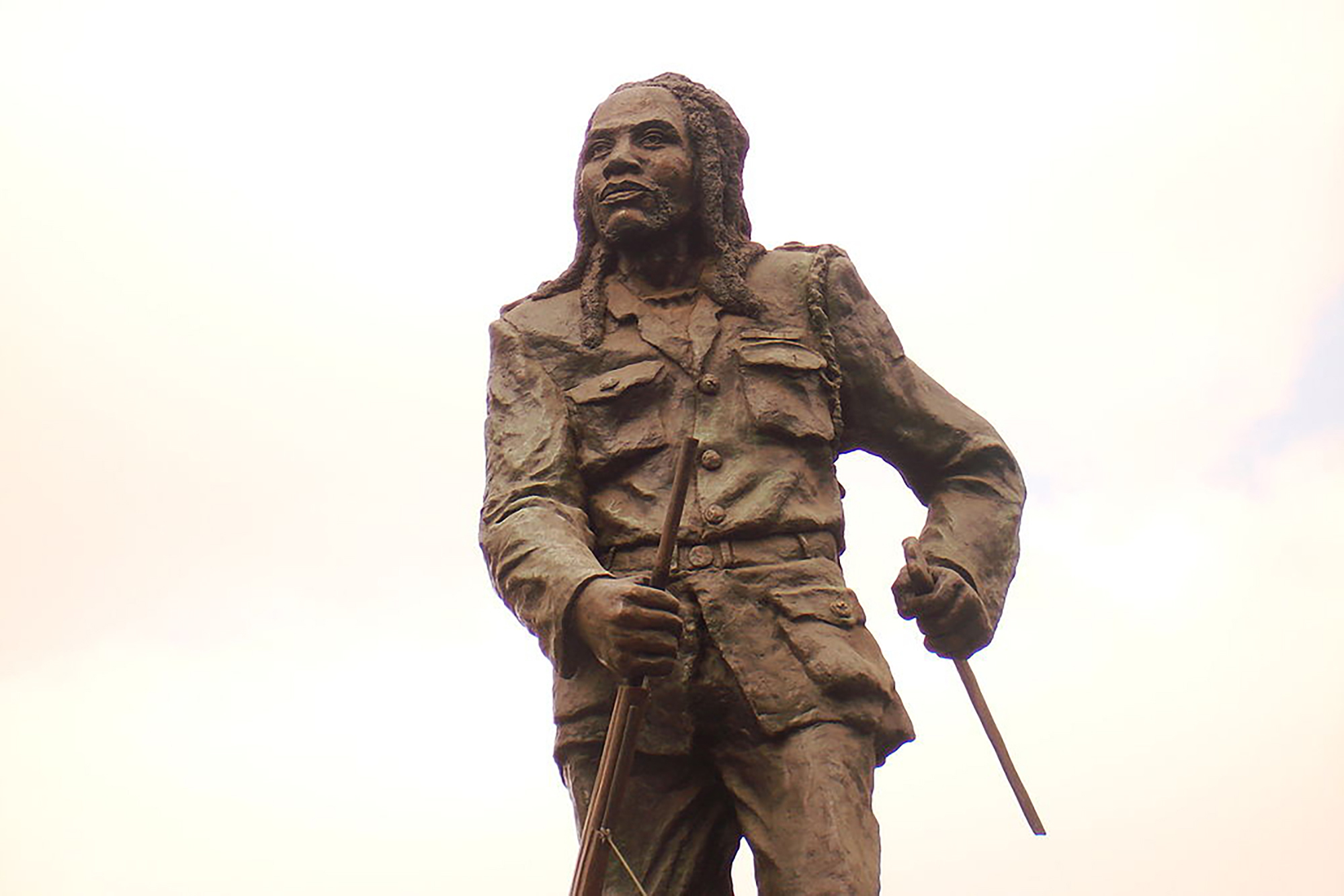 A statue of Dedan Kimathi in Nairobi, Kenya (Photo: Murungaru / Creative Commons)
A statue of Dedan Kimathi in Nairobi, Kenya (Photo: Murungaru / Creative Commons)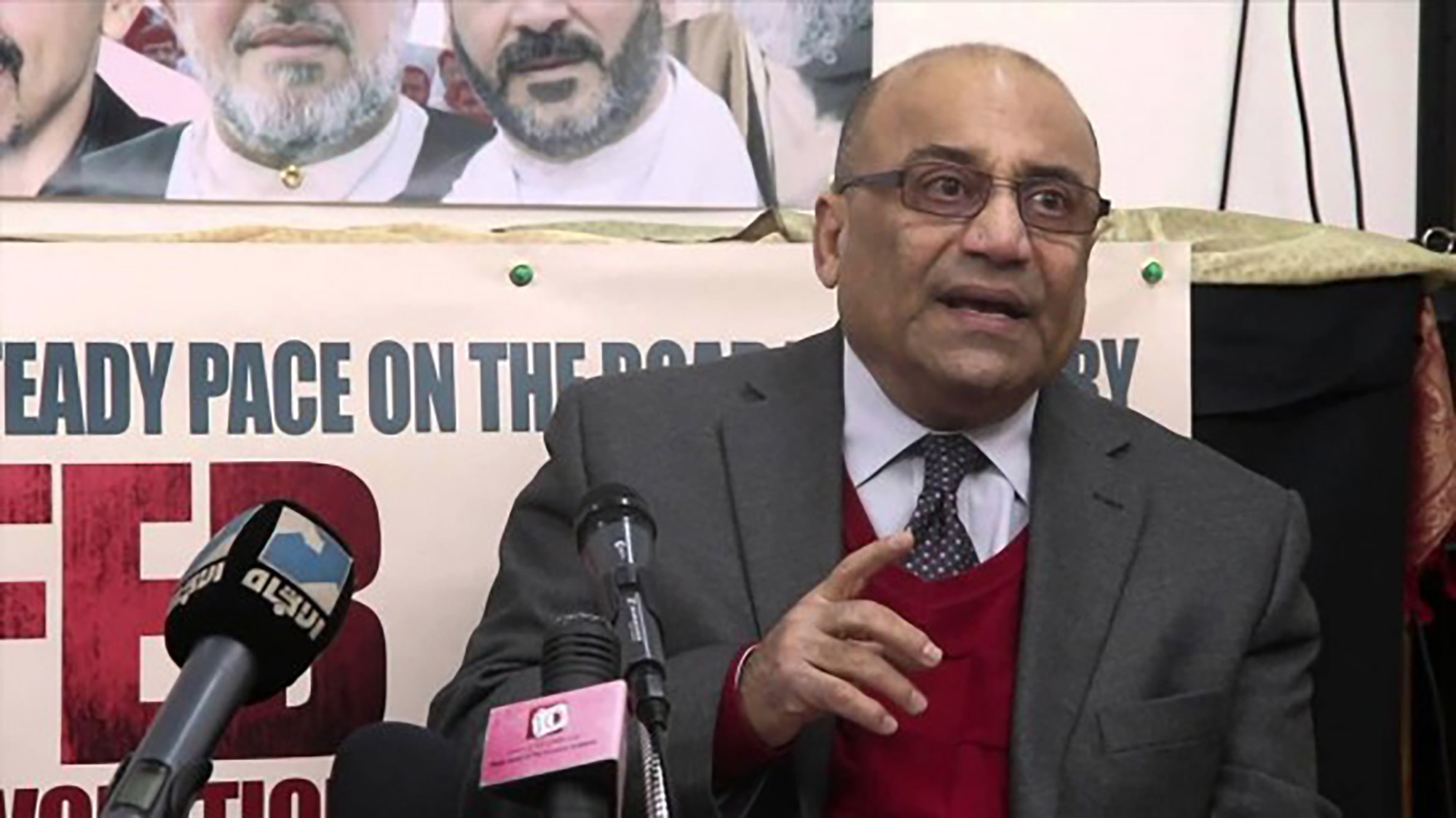 Dr Abdulhadi Khalaf. (Photo: Bahrain Mirror / Creative Commons)
Dr Abdulhadi Khalaf. (Photo: Bahrain Mirror / Creative Commons)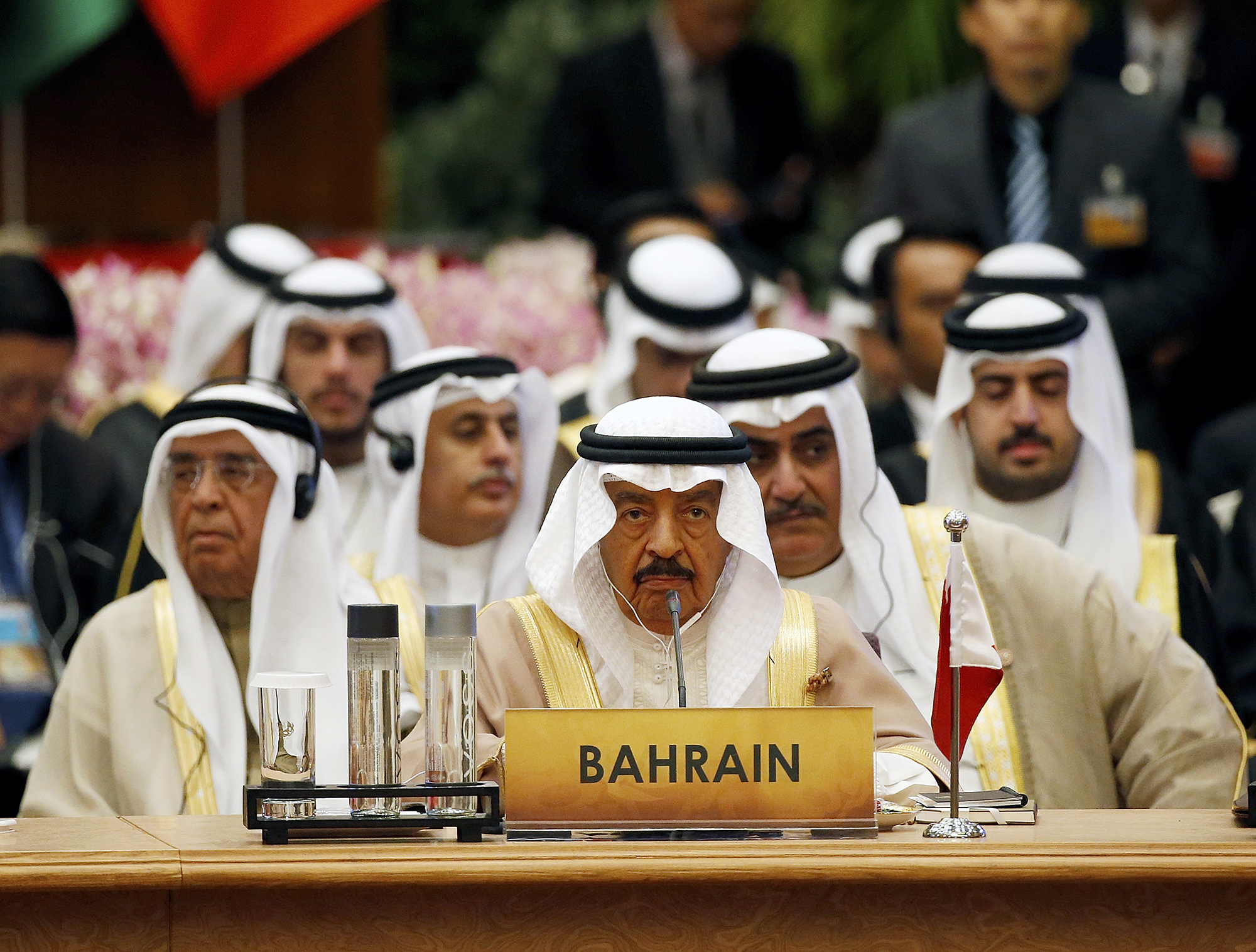 Bahrain's Prime Minister Prince Khalifa bin Salman Al Khalifa, centre, attends the second Asia Cooperation Dialogue summit at the Ministry of Foreign Affairs in Bangkok, Thailand, 10 October 2016. (Photo: PA / Rungroj Yongrit)
Bahrain's Prime Minister Prince Khalifa bin Salman Al Khalifa, centre, attends the second Asia Cooperation Dialogue summit at the Ministry of Foreign Affairs in Bangkok, Thailand, 10 October 2016. (Photo: PA / Rungroj Yongrit)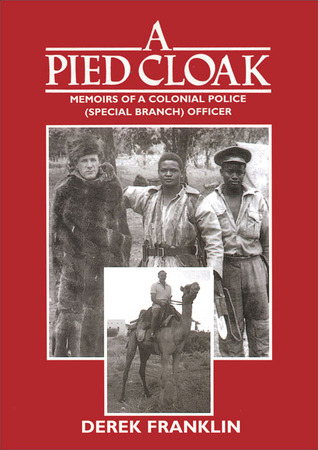 Derek Franklin wrote a book about his experiences as a colonial policeman, (Photo: A Pied Cloak)
Derek Franklin wrote a book about his experiences as a colonial policeman, (Photo: A Pied Cloak)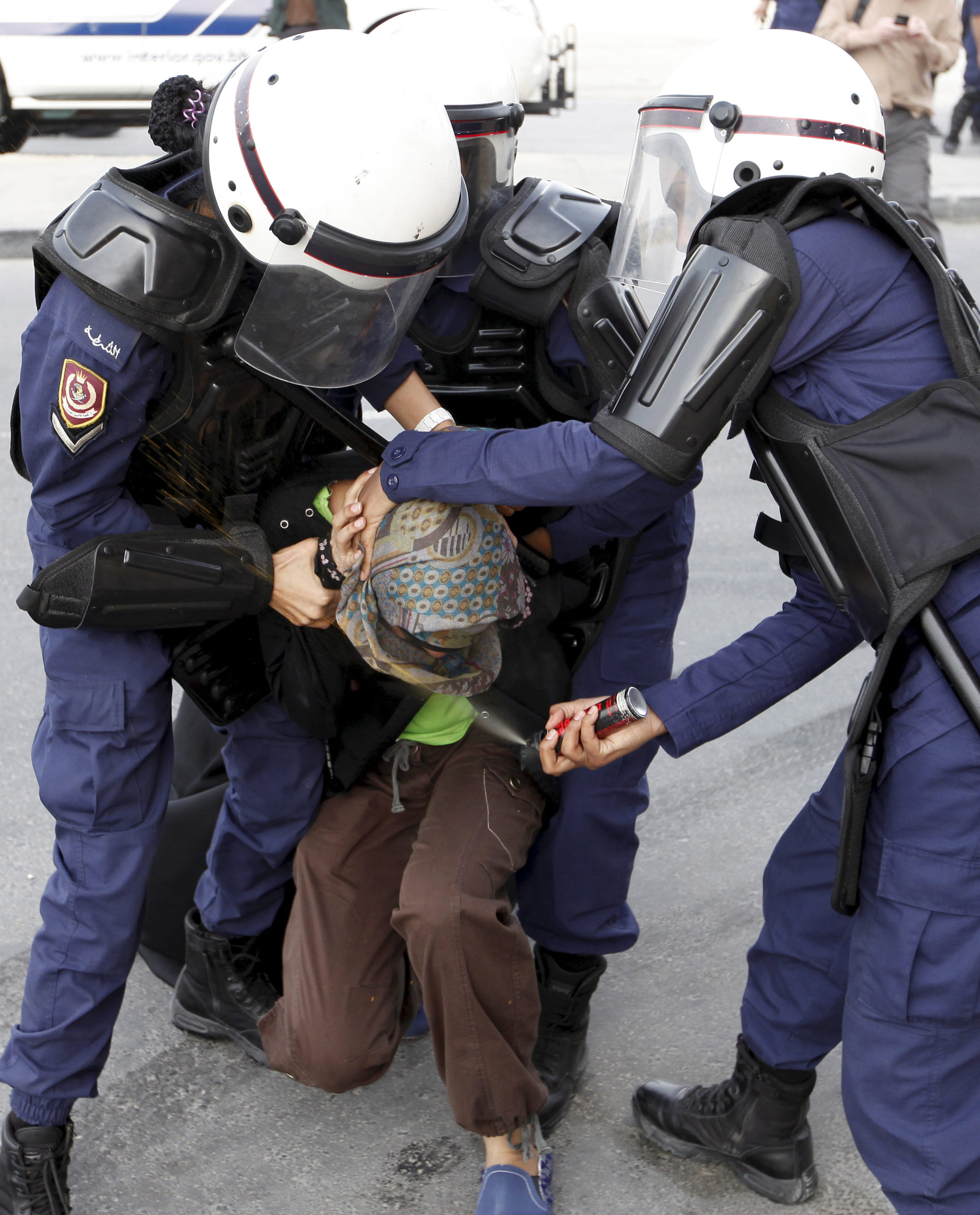 Female Bahrain riot police pepper-spray a pro-reform female protester during an all-women protest on the outskirts of Manama, 17 February 2012, as they attempted to reach Lulu Roundabout, the former site of pro-reform protests. (Photo: EPA / Mazen Mahdi)
Female Bahrain riot police pepper-spray a pro-reform female protester during an all-women protest on the outskirts of Manama, 17 February 2012, as they attempted to reach Lulu Roundabout, the former site of pro-reform protests. (Photo: EPA / Mazen Mahdi)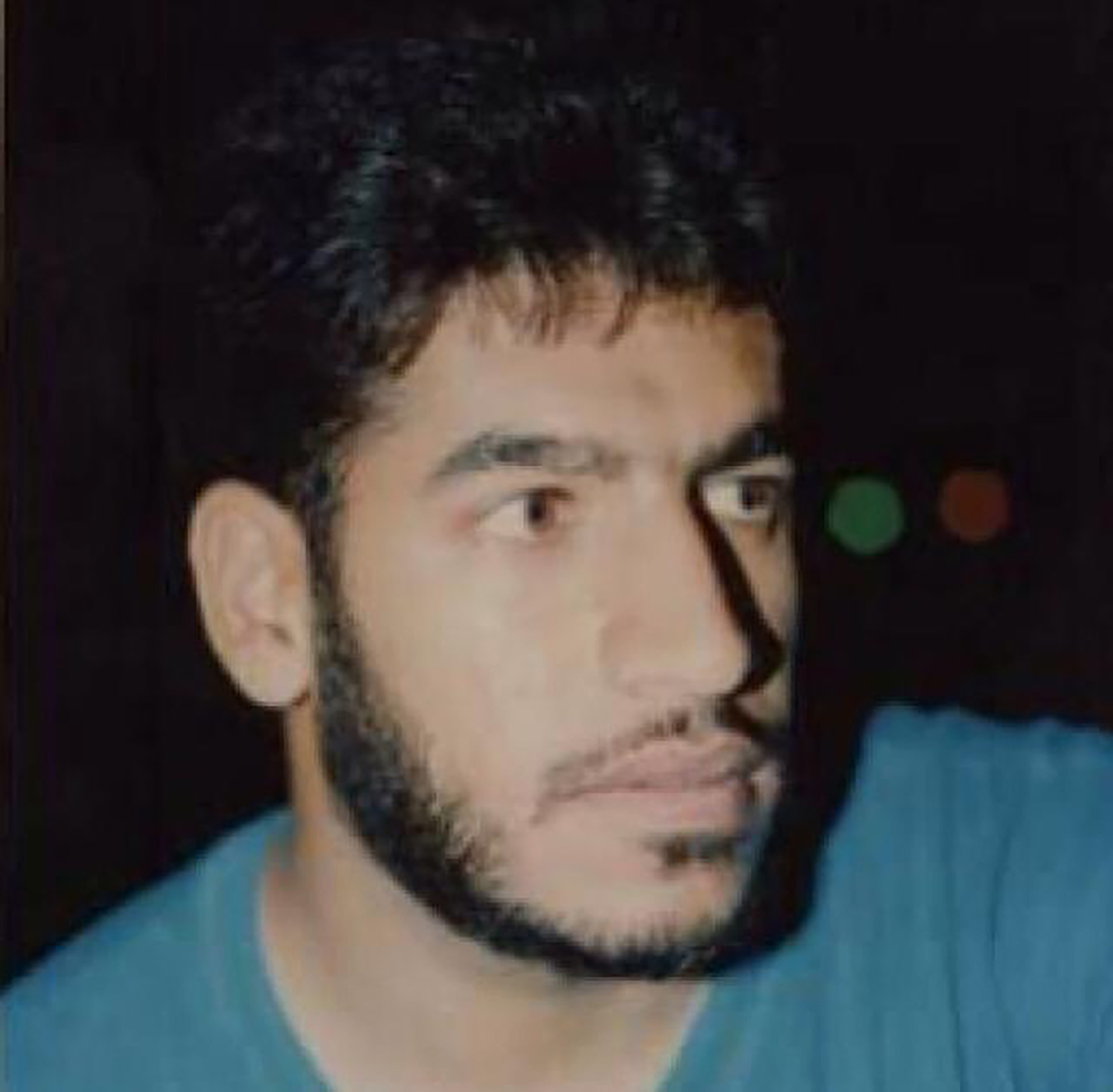 Isa Qambar was executed in 1996. (Photo supplied)
Isa Qambar was executed in 1996. (Photo supplied)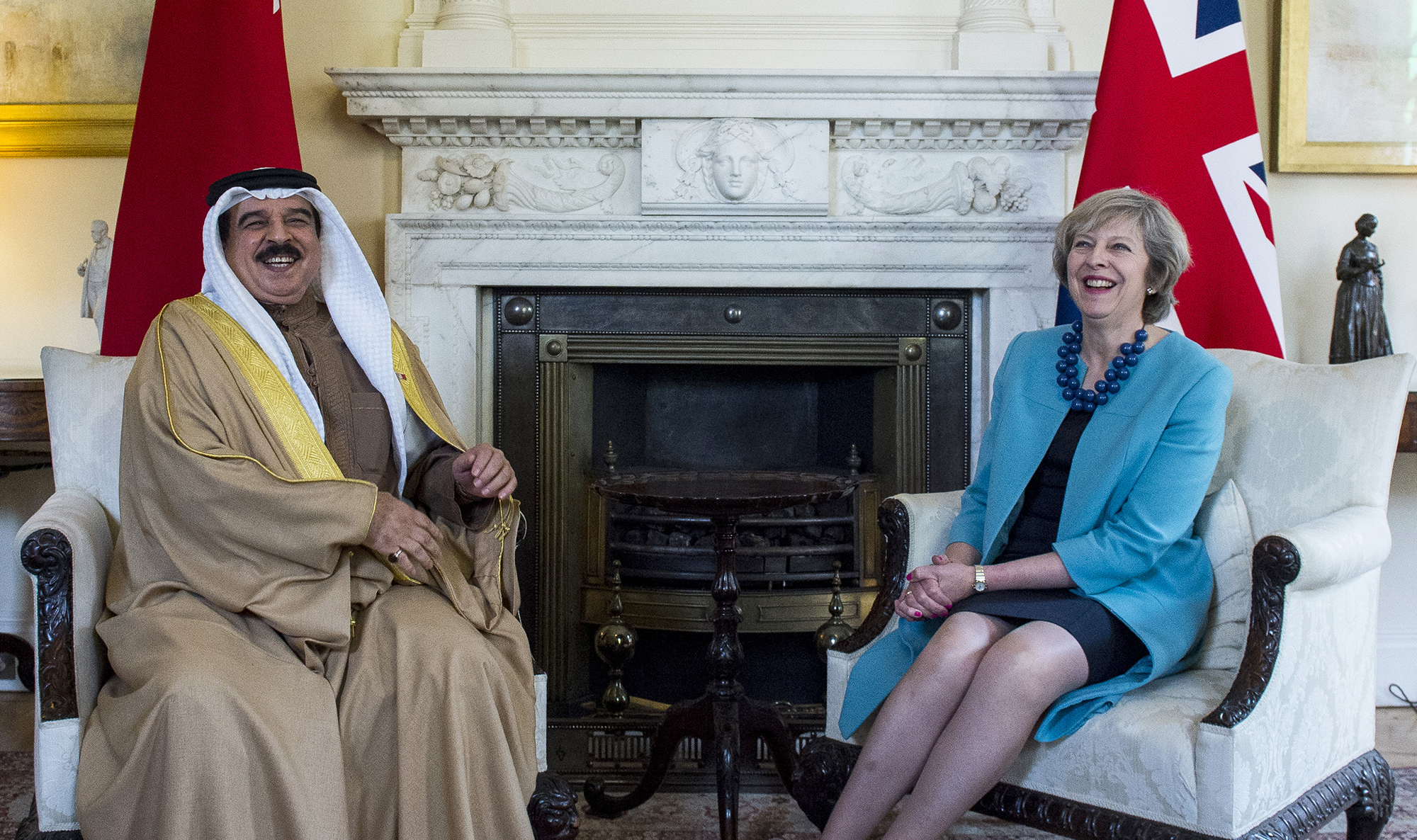 British Prime Minister Theresa May, right, during a meeting with King Hamad bin Isa Al Khalifa of Bahrain, left, at 10 Downing Street in London, 26 October 2016. (Photo: EPA / Will Oliver)
British Prime Minister Theresa May, right, during a meeting with King Hamad bin Isa Al Khalifa of Bahrain, left, at 10 Downing Street in London, 26 October 2016. (Photo: EPA / Will Oliver)



